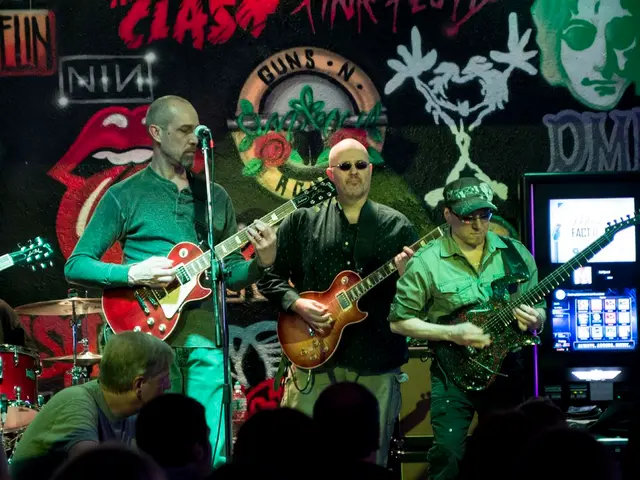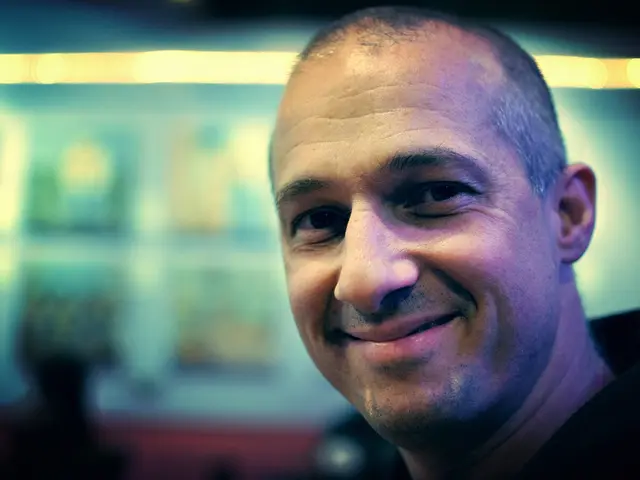Gay Pride: From Sin to Celebration, The Evolution of a Movement
Evolution of a Symbol: The Transformation of 'Pride' from a Moral Flaw to a Marker of LGBTQ Empowerment
June, often marked as Pride Month, spots the limelight on LGBTQ individuals and their impactful journey. But did you know that the word "pride" didn't always signify LGBTQ empowerment when it first surfaced? NPR's Juliana Kim delves into the intriguing history behind "Gay Pride".
Pride: Sin or Strength?
The word pride was considered one of Christianity's seven deadly sins when it first emerged over a millennium ago. However, within a few centuries, pride garnered a more encouraging meaning, symbolizing a reasonable form of self-respect. Fast forward to the 1960s, and the concept of gay pride graduallybeginning to take root.
A Leap of Progress
Marc Stein, a history professor at San Francisco State University, who has authored six books on LGBTQ history, shares insights. He explains that activists looking for inspiration drew parallels to the spirit of "Black Pride" and "Black Power" during the Civil Rights Movement. Gay pride didn't pick up momentum until after the Stonewall riots in 1969.
That fateful year, the police raided a New York City bar popular among LGBTQ patrons, igniting days of protests that proved crucial in the fight for LGBTQ rights. Following the Stonewall riots, the idea of a march in New York and other cities on the anniversary of Stonewall was proposed by East Coast gay activists. The march was a significant step towards showcasing unity and making a powerful statement for LGBTQ rights.
On the Frontlines of Change
There was debate about the march's slogan, with some supporting "gay power." However, L. Craig Schoonmaker, an organizer, advocated for "pride," stressing that anyone could embrace pride in themselves, not just hold political power. It took a few more years, but eventually, the LGBT community enthusiastically embraced the word and its meaning.
Stein points out that, before the 1970s, negative stereotypes labeling LGBTQ individuals as sinful, diseased, and criminal permeated society. Many internalized these stereotypes, making the embrace of pride, strength, and unity practices of immense importance.
Tides of Progress and Backlash
Over the years, the LGBTQ community has made remarkable strides since its early marches. In recent times, however, they've faced a resurgence of political and religious conservative pushback, reflecting the movement's success in decades past. Stein remarks, "The strength of the backlash or the backsliding is a measure of how successful the movement had been for 50 years." The road to equality remains a winding journey, but the resilience of the LGBTQ community continues to shine through.
In the shadow of Pride month, it's essential to recognize and celebrate the strides the LGBTQ community has made while continuing to fight for equal rights and representation. As we honor the legacy of Stonewall and the countless individuals who have contributed to this ongoing struggle for justice, the call to unity and solidarity remains more potent than ever.
- The embrace of the word "pride" by the LGBTQ community in the 1960s marked a significant shift in its meaning from a sin to a symbol of strength and self-respect.
- Reflecting on the evolution of the gay pride movement, Marc Stein, a history professor at San Francisco State University, notes that the march following the Stonewall riots in 1969 was a pivotal moment in unifying the community and making a powerful statement for LGBTQ rights.
- L. Craig Schoonmaker, an organizer of the early gay pride marches, advocated for the use of the word "pride," emphasizing that anyone could embrace it, not just hold political power.
- In contemporary times, the LGBTQ community faces a resurgence of political and religious conservative pushback, a measure of their success in the past 50 years according to Stein, who also highlights that the road to equality remains a winding journey.








